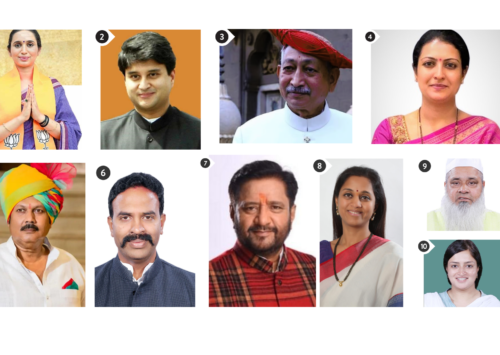GenZ worst hit as mental well-being declines in India, says study by Sapein Labs
A new report rings alarm bells about the state of mental well-being of the Indian youth as it says that as many as 51 pc of 18-24-year-olds reported being in distress or struggling in the current year. The report, Mental State of India, goes on to add that between 2020 and 2023, the number of Indian adults in distress or struggling increased by 12 pc.
The report cautions that the country’s youth population of over 200 million may enter the labour market at a gross disadvantage with regard to functioning effectively. The fact that even the more educated, predominantly English-speaking internet-enabled youth are struggling is cause for concern, warns the report prepared by Sapien Labs Centre for Human Brain and Mind at Krea University, India.
According to a press statement, the report examines the state of mental health among primarily English-speaking internet-enabled individuals, with a focus on youth aged 18-24. The report throws light on how the mental health of this group has changed since the pandemic began in 2020.
Findings are based on data from 106,427 respondents across 36 States and Union Territories, obtained between April 2020 and August 2023 as part of the ‘Global Mind Project’. This is the largest survey of its kind in the country, says the statement.
The report says that almost two years removed from the Covid-19 pandemic that reduced social interactions, increased unemployment rates, and increased use of the internet and social media, the mental health of the internet-enabled population in India is lower than in 2020.
‘‘While variations in mental health are observed across states when including all ages from 18-74 years, almost all states in India are doing poorly when we consider just youth (18-24-year-olds). Our findings suggest that poor youth mental health is not attributable to economic factors alone given that the poor relative (to older age groups) mental health of the youth persists across income levels,’’ says the statement.
According to the “Mental State of India” report, there are several factors that can explain the poor mental health of youth in India, notably low economic prospects, lower or no social interaction, less opportunity for free play as children, a diet that has moved away from traditional “whole” foods, and an increase in use of the smartphones and social media that will be explored in subsequent reports.
The decline is steepest among 18-24-year-olds. Although the mental health outcomes of the youth are poor, the study does not find evidence that the underlying drivers are economic, as findings are consistent across income levels.
The study also finds much less variation in mental health across states among 18-24-year-olds than older age groups. Moreover, the study finds that the two Southern States of Tamil Nadu and Kerala perform better than the Northern states.
Notwithstanding the current media and policy discourse around the role of academic stress and socio-economic factors such as income and employment, the study underscores the need to look at early risk factors that can inform preventive strategies, says the statement.
“Across states in India, we find that youth, considered the “Demographic Dividend” for India, are in increasing distress post-COVID. The current policy paradigm seeks to manage and treat mental health ailments through access to psychosocial support and crisis interventions. Given the sheer scale and complexity of the problem, a more preventative approach may be necessary. As we attempt to “unlock” the potential of youth to spur development, robust data is the need of the hour – to provide early warning signals and inform policy and advocacy efforts. For instance, we have found some evidence in a previously published global report that delaying the adoption of smartphones is linked with better mental health outcomes for 18-24-year-olds. Through these large-scale rapid projects, Sapien Labs India is making an attempt to piece together the country’s mental health puzzle and bridge a critical data gap,” says Shailender Swaminathan, Director, Sapien Labs Centre for the Human Brain and Mind, India.
The statement adds that the Sapien Labs Centre for the Human Brain and Mind in India is a collaboration between Sapien Labs (USA) and Krea University, with an aim to pursue research and learning related to the human brain and mind.
The Centre plans to extend this critical work beyond English-speaking participants from India, to include other language groups. Subsequent work will examine the role of other risk factors such as processed food consumption, exercise and family relationships on the mental well-being of adolescents and youth, in addition to smartphone access and use.










